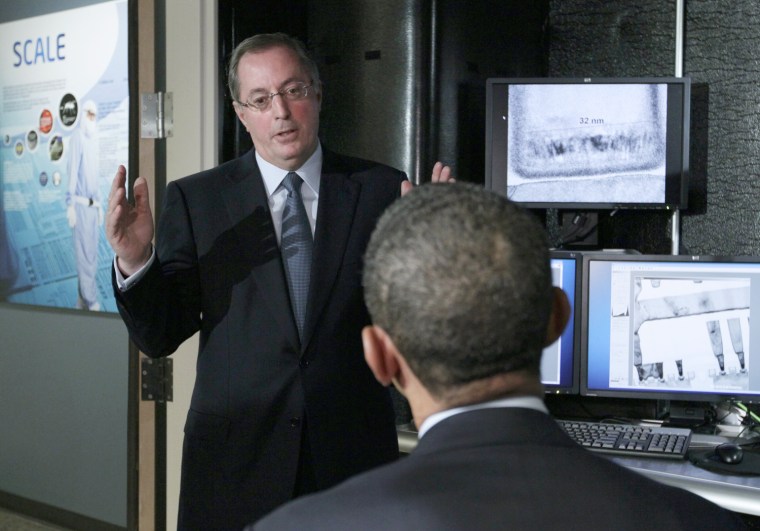Editor’s Note: This week, NBC is taking a look at the challenges and opportunities for America.
Many of the nation's best and brightest are asking what it will take for us to reinvent ourselves, and remain the largest economy and largest manufacturing nation in the world.
NBC’s Tom Costello traveled from Boston to San Francisco to find out.
________
Time and again, American innovation has transformed the economy, creating countless jobs along the way. So is there a next big thing on the horizon that might lift the economy and create millions of new jobs?
In Silicon Valley, chip giant Intel is spending $7 billion on research and development this year alone, looking for the next big thing.
"You see us investing in good times and in bad times when other people don't," says Intel CEO Paul Otellini, who fears the U.S. is losing its competitive edge to Asia. He blames high corporate taxes and an education system that is falling behind the rest of the world in math and science.
'Very scary'
"This is very scary, and you take this out over another 10, 20 years and I think that you won't have the ability to find the workers you need for the jobs that American companies or foreign companies located here are going to need," Otellini says.
So Intel is investing $100 million a year in K-12 education, and another $100 million in collaborative University research centers, looking at the next generation of computing.
But Otellini doesn’t see a single next big thing on the American horizon. Rather, he sees a series of innovations in high-tech, bio-tech and green-tech.
Intel is now hiring thousands of employees at new plants in Michigan, where it’s building batteries for new electric vehicles and massive batteries to back up the nation’s electric grid.
If it's going to be a series of innovations, one of those breakthroughs may be happening right in Boston at the research and development lab A123, where they’re taking lithium battery technology to a whole new level.
The company is now hiring thousands of employees at new plants in Michigan, where it's building batteries for electric vehicles and massive batteries to back up the nation's electric grid.
Battery power
"We can make the grid more stable, by applying batteries that will last for a decade, that will provide stability for the grid," says David Vieau, president and CEO of A123.
A-123 was the brainchild of several professors at the Massachusetts Institute of Technology, whose alumni have founded 26,000 now active companies in the United States.
"Entrepreneurship is not our short-coming," says Ed Roberts, a professor at MIT’s Sloan School of Management. "The shortcoming resides with the large firms who are not staying with it."
Roberts says those firms are too quick to ship jobs overseas instead of taking advantage of business incentives and university educated workers.
As for Intel, it has 45,000 U.S. employees – 55 percent of its workforce -- and is spending billions on factories in Arizona, New Mexico and Oregon.
"We don't have a God-given right to these jobs," Otellini says. "We have to make sure that we create the environment where people — not just American firms, but foreign firms — want to invest here."
The question is whether America will lead the way in this century, as it did in the last.
